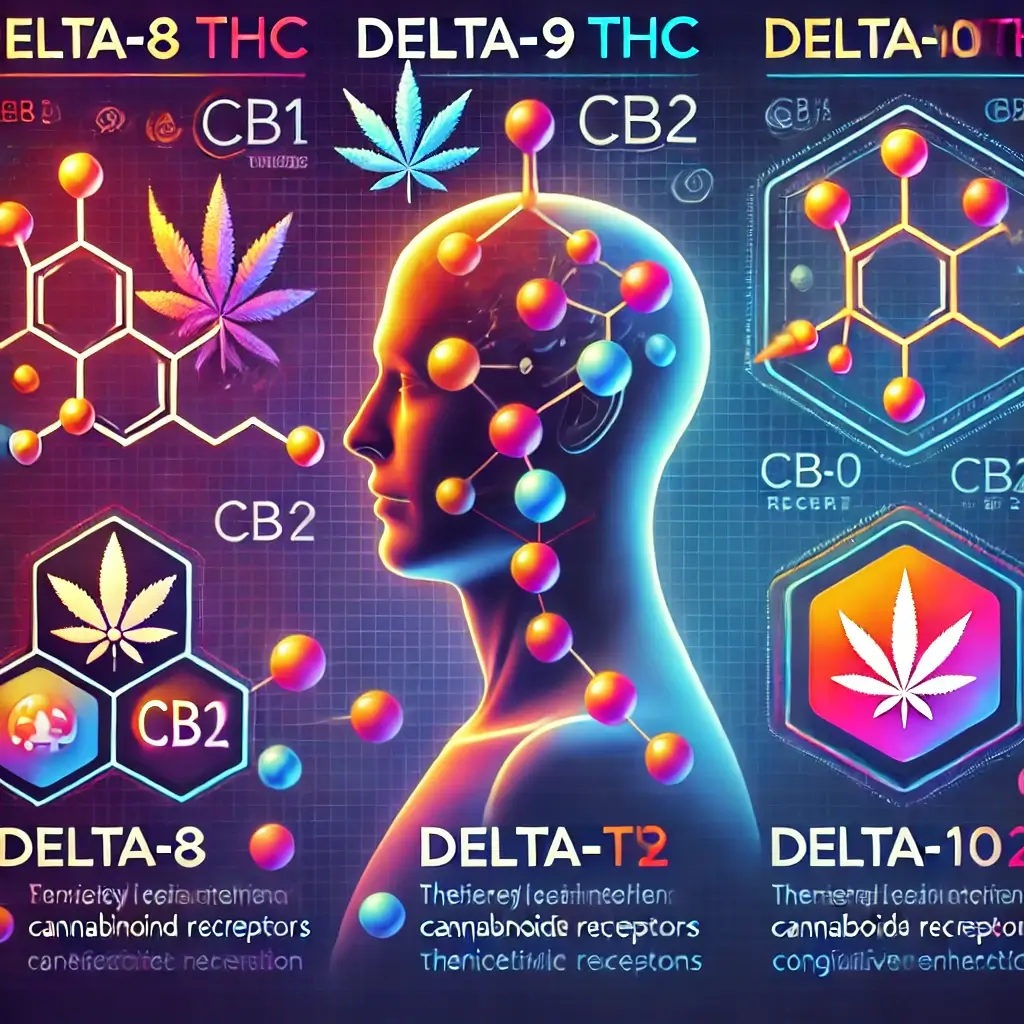The Power of Isomers: How Different THC Compounds Transform Patient Care
Understanding Delta THC Isomers and Their Therapeutic Potential
In the rapidly expanding field of cannabis research, understanding the subtleties of its active compounds is vital. Among the most intriguing discoveries are Delta THC isomers, namely Delta-8 THC, Delta-9 THC, and Delta-10 THC. These structural variants of tetrahydrocannabinol offer unique therapeutic opportunities while presenting varying pharmacological profiles. This distinction is critical for clinicians and researchers seeking to optimize the benefits of cannabis-based treatments.
Endocannabinoid System Interactions
Delta THC isomers share a common molecular backbone but diverge in their atomic arrangements, profoundly influencing their interactions with the body’s endocannabinoid system (ECS). This system, essential for maintaining physiological equilibrium, comprises cannabinoid receptors (CB1 and CB2) located throughout the body. While Delta-9 THC has long dominated both medical and recreational use for its potent psychoactive effects, Delta-8 THC and Delta-10 THC are gaining attention for their more nuanced applications. Delta-8 THC is particularly noted for its mild psychoactive properties and potential in managing anxiety and nausea. Delta-10 THC, still under exploration, hints at benefits in cognitive function and neuroprotection.
Research Focus and Scientific Analysis
The increasing interest in these isomers has prompted rigorous research into their pharmacodynamics, pharmacokinetics, and therapeutic implications. This article provides a deep dive into their comparative pharmacology, highlighting their unique properties and emerging clinical uses. By bridging the gap between science and application, this analysis aims to empower informed decisions in the growing field of cannabis therapeutics.
Structural Differences and Receptor Interactions
Delta-8 THC: With a modified stereochemical structure, Delta-8 THC demonstrates a lower binding affinity to CB1 receptors than Delta-9 THC, leading to reduced psychoactivity. According to studies in the Journal of Molecular Pharmacology, this makes it an attractive option for patients requiring symptom relief without significant cognitive impairment.
Delta-9 THC: This isomer exhibits strong activation of both CB1 and CB2 receptors, contributing to its broad therapeutic range. Its psychoactive effects, however, often necessitate careful dosage control to balance efficacy and tolerability.
Delta-10 THC: Although research on Delta-10 THC is in its infancy, early data suggests distinct receptor interactions that may influence neural pathways related to memory and focus, offering a potential edge in cognitive therapies.
Pharmacokinetics and Clinical Applications
Pharmacokinetics, encompassing absorption, distribution, metabolism, and excretion, reveal notable differences:
Delta-8 THC tends to exhibit slower metabolism, yielding prolonged effects that are particularly useful in managing chronic conditions.
Delta-9 THC’s rapid metabolism often leads to intense, shorter-lasting effects, making it suitable for acute symptom management.
Delta-10 THC, with its intermediate metabolic profile, may offer a balanced duration of action, although further studies are needed.
Therapeutic Applications and Research
The therapeutic potential of these isomers varies considerably:
Delta-8 THC: Clinical applications include managing nausea, particularly in cancer patients undergoing chemotherapy, and reducing anxiety.
Delta-9 THC: This isomer is widely used for pain management, appetite stimulation, and inflammation control in various conditions, including arthritis and fibromyalgia.
Delta-10 THC: Its potential in cognitive enhancement and neuroprotection makes it an exciting avenue for research, especially for conditions like Alzheimer’s disease and ADHD.
Implementation Challenges and Future Directions
Developing evidence-based dosing protocols for each isomer is critical. For instance, Delta-8 THC’s reduced psychoactivity may allow higher doses in sensitive populations, while Delta-9 THC requires careful titration to minimize side effects. Regulatory challenges and inconsistent product labeling remain significant barriers to widespread adoption. The legal status of Delta-10 THC, for instance, varies, complicating its clinical application.
Summary and Future Perspectives
Delta THC isomers represent a fascinating frontier in cannabis pharmacology, each offering distinct advantages for therapeutic use. Delta-9 THC continues to be a cornerstone of cannabis medicine, while Delta-8 THC provides a less psychoactive alternative for symptom relief. Delta-10 THC, though less understood, holds promise for enhancing cognitive and neuroprotective treatments. As research progresses, the nuanced understanding of these compounds will drive innovations in personalized medicine, unlocking new potentials for cannabis-based therapies.













